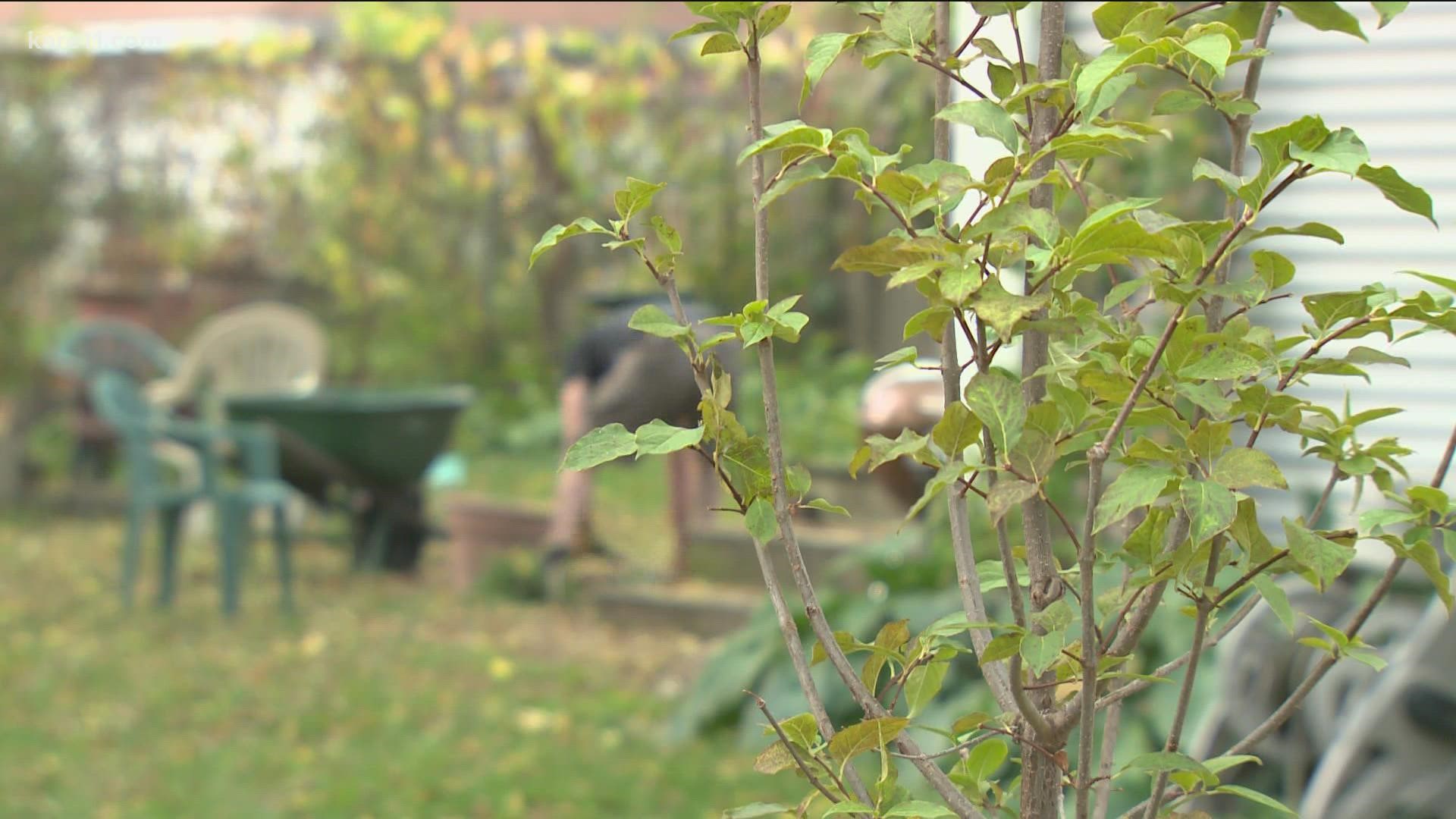ST PAUL, Minn. — We might be moving into fall, but it's hard to forget how hot summer was.
Depending on where you live, your neighborhood might also be hotter than others.
On Saturday, the Metropolitan Council and groups of volunteers are planting trees as part of an effort to make parts of the city more resistant to extreme heat.
Trees provide shade and also absorb water through their roots and evaporate it through leaf pores, which can cool the air.
St. Paul's Frogtown neighborhood has the lowest amount of tree canopy.
"We have to cool the city canopy down," said volunteer Dale Howey. "This is one way we're taking action to do that is restore the urban forest."
A lot of the trees are lost to construction and disease, like Emerald ash borer. Last summer, the city removed 30 ash trees from just one boulevard.
More trees can also combat our increasingly hot summers.
"We had 26 days over 90 degrees just this summer and our average summer, we usually have 13 days that are over 90 degrees," said Met Council Planner Eric Wojchik.
The Met Council tracks the lack of trees and learned there's also a disparity across neighborhoods.
"You have a neighborhood like Frogtown that has 22% tree canopy coverage and then you have other neighborhoods in St. Paul that have 37%," said Wojchik, like Macalester-Groveland.
That can mean a temperature difference as much as 10 to 15 degrees.
"And with climate change, we're having more heat waves, so people are having to experience this and it's a public health issue," said Wojchick. "It's a quality of life issue."
While planting more trees can tackle a lot of problems, Howey also believes trees will take care of you – if you take care of them.
"We've got to re-tool the way we think about nature and work in concert with it and not against it," said Howey. "It's not something in the way; it's something that will help us survive."
The group says it plans to plant about 70 trees this weekend.
Met Council also created an interactive map that lets you zoom into your own neighborhood and see where it's hottest. It also helps cities prioritize where to start planting trees.

